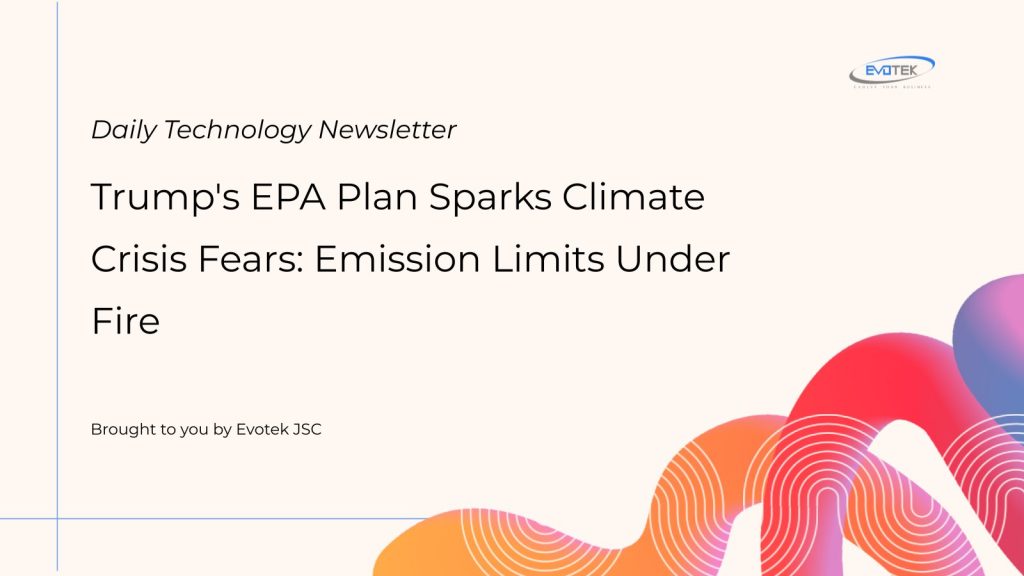A proposal from the Environmental Protection Agency (EPA) under the Trump administration to eliminate emission limits on power plants is drawing sharp criticism from climate scientists and environmental advocates. The move, which aims to reverse existing regulations on greenhouse gas emissions from coal and gas-fired power plants, is being described as “deeply concerning” and “reprehensible”.
According to a draft plan, the EPA argues that emissions from these plants do not significantly contribute to dangerous pollution. This claim is strongly refuted by experts who point out that fossil fuel-burning power plants are the largest domestic stationary source of climate-destabilizing carbon dioxide in the US, second only to China. The EPA’s plan has raised worries about a significant increase in the nation’s carbon footprint.
The Science Behind the Alarm
Scientists warn that removing these limits undermines the nation’s ability to meet its climate goals. “There is no meaningful path to reducing U.S. carbon emissions without limiting greenhouse gas emissions from coal and gas-fired power plants,” explains Dr. Gretchen Goldman, president of the Union of Concerned Scientists. Such a policy shift could disincentivize the transition to renewable energy sources.
Legal and Political Fallout
Critics argue that the EPA is overstepping its legal boundaries. Patrick Drupp, director of climate policy at the Sierra Club, views the action as currying favor with the fossil-fuel industry. The proposal follows a Supreme Court decision that limited the EPA’s ability to force utilities to switch to renewable energy sources.
An EPA spokesperson defended the proposal, stating it seeks to ensure that the agency follows the rule of law while providing Americans with access to reliable and affordable energy. EPA chief Lee Zeldin has emphasized the need for a balanced approach.
The move is expected to face legal challenges. Jonathan Adler, a law professor at Case Western University, suggests that success in deregulating power plants could pave the way for broader deregulation efforts.
What’s Next?
As the proposal undergoes interagency review, the debate over its potential impact on the environment and the economy is only intensifying. This move underscores the ongoing tension between energy policy and climate action, setting the stage for further regulatory battles and policy debates.
Keywords: EPA, Trump, climate change, power plants, greenhouse gas emissions, Lee Zeldin, renewable energy, environmental policy
- Learn more about the Union of Concerned Scientists
- Explore the Sierra Club’s climate initiatives
- Read the latest EPA statements

 日本語
日本語 한국어
한국어 Tiếng Việt
Tiếng Việt 简体中文
简体中文